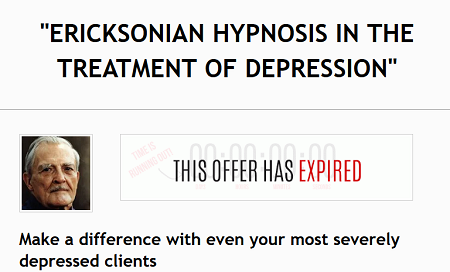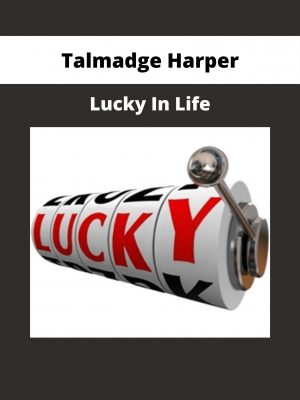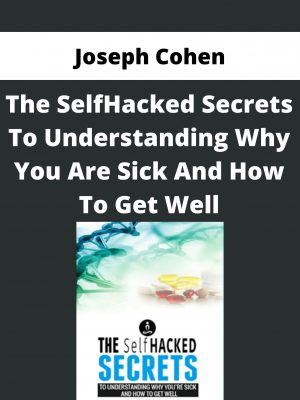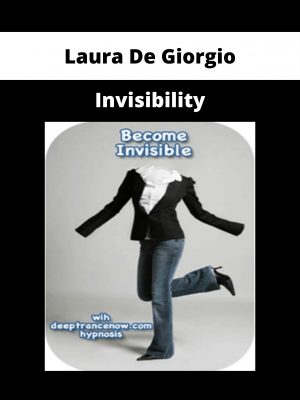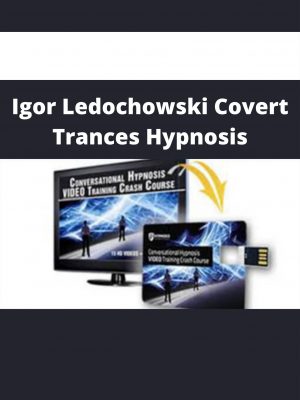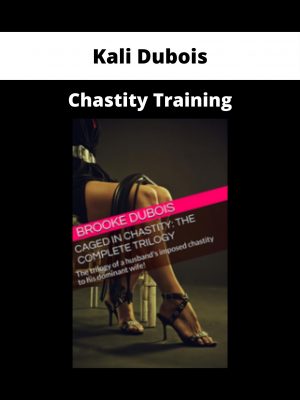Ericksonian Hypnosis for Depression
$79 Original price was: $79.$26Current price is: $26.
Shopping Instructions:
- DISCOUNT 15% : SHOP15
- Product Delivery: Within 1 – 12 hours after purchase.
He has been a top-rated presenter at many national conferences and was awarded the Outstanding Mental Format File: [15 MP4, 14 PDF, 2 EPUB, 1 AZW] File size: 6.36 GB
Ericksonian Hypnosis for Depression
Make a difference with even your most severely depressed clients
Get the “50,000 Foot View” of hypnotic treatment strategies so that you know what your client needs and how you can deliver it.
Learn strategies that you can put to use immediately in your practice
and life
Expand your skills and your knowledge with the latest research on depression
Learn how to add hypnotic strategies to your current treatment modality to improve your success rate
Keynote: Michael Yapko
Treating Depression Hypnotically and Strategically: The Power of Experiential Learning in Teaching Mood Regulation Skills
yapko-headset-square-150×150
Treating Depression Hypnotically and Strategically emphasizes the importance of utilizing proactive and well-targeted interventions when treating depression. How you as a clinician think about the nature of depression and answers fundamental questions – such as what causes depression – naturally determine what treatment approach you are most likely to take.
But regardless of your preferred orientation, depression experts agree that treatment needs to be multi-dimensional and active. Furthermore, the more we learn about the neuroscience of depression, especially neuroplasticity and neurogenesis, the more important well designed experiential learning processes become in treatment. These include the use of task assignments and focusing processes such as hypnosis.
You will learn:
How hypnosis can both increase your client’s responsiveness and enhance the efficacy and power of your interventions.
To identify specific cognitive patterns that influence treatment responsiveness so that you can employ hypnotic strategies to enhance their value as catalysts
How hypnosis can be used as a means of encouraging behavioral activation. Regardless of your theoretical model, the research shows us that we need to get our clients acting and trying on new behaviors. Hypnosis can help you do that.
Michael D. Yapko, Ph.D., is a clinical psychologist and marriage and family therapist residing in Fallbrook, California. He is internationally recognized for his work in clinical hypnosis, brief psychotherapy, and the strategic treatment of depression, routinely teaching to professional audiences all over the world. He is the author of 13 books, including his newest, Mindfulness and Hypnosis, as well as Breaking the Patterns of Depression, Depression is Contagious, Treating Depression With Hypnosis, and the classic text Trancework: An Introduction to the Practice of Clinical Hypnosis (4th ed.)
Keynote: Bill O’Hanlon
Out of the Blue: Six non-medication ways to relieve depression
ohanlonDepressed people tend to ruminate on the same thoughts, focus their attention in the same direction and do the same things over and over again (like stay in bed). This presentation will show you how these things are like creating and reinforcing a “bad trance”-like state and how to use our modern knowledge of the brain to come up with some simple, yet powerful interventions to start to give depressed people traction out of their bleak state.
You will learn:
Specify why depression is like a bad trance and how to change the trance to a more positive one.
Discover and use many non-drug interventions you can use to break the bad trance of depression and help your clients heal while drastically reducing relapse rates
Talk about why brain plasticity has both a good and bad aspect for people who are depressed. This will help you in your interventions and to build rapport with your clients.
“I think Bill’s presentation was my favorite presentation. It was rich with ideas that I can take forward in my work. I feel like the work is tangible. I’m going to go back and listen again in a day or two.
Cheers!” Ann F
Bill O’Hanlon, MS, LMFT, has authored or co-authored 36 books, including Out of the Blue: Six Non-Medication Ways to Relieve Depression (W.W. Norton). He has published 60+ articles or book chapters. His books have been translated into 16 languages:. He has appeared on Oprah (with his book Do One Thing Different), The Today Show, and a variety of other television and radio programs. Since 1977, Bill has given over 3500 talks around the world.
He has been a top-rated presenter at many national conferences and was awarded the Outstanding Mental Health Educator of the Year in 2001 by the New England Educational Institute. Bill is a Licensed Mental Health Professional, Certified Professional Counselor, and a Licensed Marriage and Family Therapist. He is known for his storytelling, irreverent humor, clear and accessible style and his boundless enthusiasm for whatever he is doing. His presentations are as entertaining as they are educational.
Carolyn Daitch
Getting Your Life Back: Healing Depression with Hypnosis
Carolyn DaitchThe aim of this workshop is to present innovative and effective hypnotherapeutic techniques for the management of depression. Hypnosis is a powerful modality that can help your clients manage their symptoms by altering the cognitive, emotional, behavioral and physical responses that accompany depression. As such, it can be a powerful adjunct to both cognitive and behavioral treatments for depression. Mental health professionals from all backgrounds can enhance their clinical repertoire with the hypnotherapeutic adjuncts provided, and offer clients quick, easy-to-implement techniques to treat depression.
You will be able to:
Articulate the rationale for the use of hypnotherapeutic techniques as an adjunct in the treatment of depression (for you, your clients and any organization where you need to justify your treatment protocol)
Identify and implement several interventions that can help your clients diminish feelings of hopelessness associated with depression, including a demonstration of two short, powerful trances call “fast forward” and “the wise self.”
Identify and implement two interventions (transcripts provided) that can help access strong parts of self that can manage more vulnerable parts.
Get immediately download Ericksonian Hypnosis for Depression
Carolyn Daitch, Ph.D., is a psychologist, trainer, author and presenter. She is the director of the Center for the Treatment of Anxiety Disorders in Farmington Hills, Michigan. Her time is split between clinical practice, supervision, consultation and teaching. She is recognized for her practical, easy-to-implement interventions.
In 2007, Dr. Daitch published the award-winning Affect Regulation Toolbox: Practical and Effective Hypnotic Interventions for the Over-reactive Client (W.W. Norton), which has received international acclaim. Dr. Daitch is also the author of Anxiety Disorders: The Go-To Guide for Clients and Therapists (W.W. Norton, 2011), and co-author of Anxious in Love: How to Manage Your Anxiety, Reduce Conflict and Reconnect with Your Partner (New Harbinger, 2012). Her newest project is The Road to Calm Workbook: Life-Changing Tools to Stop Runaway Emotions (W.W. Norton, In Press).
Steve Andreas
The Many Faces of Loss, and How to Resolve It.
SteveAndreas Much depression results from grieving a loss, which can take many forms. It can be a loss of a person/relationship, a location, a treasured activity, information, or a physical object. It can even be the loss of something that someone never actually had, except as a treasured anticipated dream. Grief results from thinking of the loss as distant, resulting in a feeling of emptiness. Resolution occurs when the person reunites with the treasured memory so that it is present in their experience, with all the positive feelings.
You will learn:
How to elicit the internal mental structure of Grief in response to a
loss (loss of a person, desired futures and other commonly encountered losses).
How to elicit the internal mental structure of a loss that is experienced as a positive resourceful present felt experience.
How to transform the experience of grief into a positive resourceful present “felt experience” to help your clients rapidly transform their life.
Steve Andreas is one of the most active developers of NLP. He has been learning, training, and researching NLP since his introduction to it in 1977, and has been developing new NLP patterns since the early 1980s. He was the co-founder with his wife Connirae of NLP Comprehensive in Boulder Colorado in 1979, one of the first NLP institutes. Recently he authored Transforming Negative Self-Talk (2012) and MORE Transorming Negative Self-Talk (2014) and the two-volume set Six Blind Elephants: Understanding Ourselves and Each Other (2006). He also wrote Transforming Yourself: Becoming Who You Want To Be (2002) and Virginia Satir: The Patterns of her Magic (1991). He co-authored (with Connirae) Heart of the Mind (1989), Change Your Mind (1987), and the NLP 24 Day Practitioner Certification Training Manual (1986). Many free articles can be found on his website: http://www.steveandreas.com/
Rob McNeilly
What Can Solution Hypnosis Contribute to The Treatment of Depression?
JF04951 – Version 3 In this presentation I will invite you to explore into what hypnosis in general and solution hypnosis in particular can contribute to this question, how we can explore ways to more respectfully adapt our approach to the uniqueness of each individual client’s experience of depression by exploring what might be missing for them and helping them to reconnect with whatever this may be so they can then find their own solution often in a surprisingly rapid and permanent way.
The issue of self care will also be addressed. That is, how to avoid getting depressed yourself.
You will learn:
how you can discover the specific experiences that each of your clients needs to heal from depression.
to clarify what might be missing for each individual leading to a more respectful and more rapid resolution of their depression
use ericksonian strategies for connect people to their experiential resources so that they can more easily change their behaviors and engage in enjoyable life activities.
how to avoid therapy burnout and make sure that you do not “catch” depression.
“Rob has created new possibilities with hypnosis and rediscovered many easy and practical ways to collaborate with clients for change that are both effective and fun.” Neil Mello.
Dr. Robert McNeilly was in a suburban Melbourne general medical practice for 10 years, had the privilege of learning directly with Milton Erickson, was inspired by his human approach to therapy, and created his own interpretation to assist clients in a respectful, dignified way with the human dilemmas that affect individuals, couples and families.He founded the CET in l988 to introduce Ericksonian Hypnosis and the Solution Oriented Approach to hypnosis, counselling and coaching in Australia. For more than 30 years, the contribution he brings in his teaching style, writing and unique approaches to learning and therapy allow for a ready application into everyday living and are recognised locally, nationally and internationally, including repeated invited presentations at the Milton H Erickson Foundation’s International Congresses in USA since 1980 and workshops in Singapore and Denmark since 1999. Students comment on his easy, respectful manner and his elegant ability to make complex issues approachable while retaining their essence.
Lynn Johnson
Altered States: Why Hypnosis Helps Depression
Lyn johnson
While CBT certainly is helpful to depression, it is not true that it does better than other treatments. In this briefing, clinicians will learn a simple form of self-hypnosis (autogenic training) that is shown to greatly reduce relapse. We will also cover studies of meditation and depression recovery to show why this skill is so useful to you as a caring clinician.
Learn a simple and easily learned form of self-hypnosis that reduces depression, stress, and anxiety. You can apply it easily to physical pain as well.
You will learn:
Learn, experience and use a simple form of self-hypnosis to speed recovery from depression and is also useful for chronic pain and many other issues.
How inflammation plays a role in triggering depression and how self-hypnosis reduces it.
How understanding inflammation explains the positive results from meditation and self-hypnosis.
Lynn Johnson received his Ph.D. from the University of Utah in counseling psychology, and has been a licensed psychologist for over 35 years. He has seven books in print and several in electronic format, has written over 20 professionals papers while maintaining a private practice, the Brief Therapy Center of Utah. He has presented workshops in every state and in Japan, England, Germany, and Spain. His hobbies are raising children and grandchildren.
New Bonuses: Just Added!
Some rare and highly impactful presentations from our extensive library of presentations:
A Kaleidoscopic View of Utilization” by Helen Erickson, PhD
“Most Ericksonian practitioners have adopted the concept of Utilization as the foundation for their practice. Yet many still discuss it from the perspective of what the practitioner does with the client. An alternative perspective is that utilization is a way of thinking about the client. The first emphasizes the work of the therapist, the second emphasizes the client’s world view as a foundation for the therapist’s work. This presentation explores the relationship and implications for the two perspectives.”
Lifting Depression Video Case Demonstration with Rob McNeilly” See Ericksonian Hypnosis in action with Rob doing a session with someone who is “depressed.”
Gabrielle Peacock, MD: Starting In The Middle: Ericksonian Hypnosis For Psychosis
Several people asked whether hypnosis should or should not be used with people labeled “psychotic” or with other such labels. In this bonus presentation Gabrielle Peacock shares her experience of working with human beings with various levels of what she calls “a mastery at dissociation” and what the medical model might call psychosis, bipolar, or the dissociative spectrum disorders. Many of her strategies are useful with people labeled “depressed.”
All Presentations and Bonuses
With free transcripts and 6 free CE’s (Must take CE test before October 28th, 2017.
All presentations are yours to keep forever. Watch online or download, 6 continuing education units provided for Psychologists, Social Workers, Nurses and Marriage and Family Therapists, Licensed Professional Counselors and Licensed Mental Health Counselors (see below)
All presentations are available to be watched now, and will be online until the end of next year. There are no specific dates for this conference view or download the presentations whenever you would like.
Ericksonian Hypnosis for Depression: Sample
Here’s What You’ll Get in Ericksonian Hypnosis for Depression
Related products
NLP & Hypnosis
NLP & Hypnosis
Joseph Cohen – The SelfHacked Secrets To Understanding Why You Are Sick And How To Get Well
NLP & Hypnosis
NLP & Hypnosis
NLP & Hypnosis
NLP & Hypnosis
NLP & Hypnosis
NLP & Hypnosis



